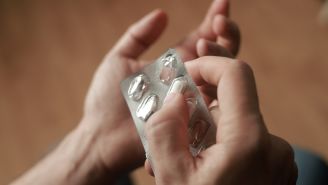Updated on August 13, 2024.
If you have been popping antacids but finding no relief from heartburn, consider making some lifestyle changes. Taking a few steps in your daily life may help ease your symptoms.
“We can definitely be proactive,” says Amy Freeman, a registered dietitian and certified diabetes educator in Ocala, Florida Health. Sometimes medical factors cause heartburn. “But we can control other things,” Freeman says.
Here are just a few lifestyle changes you can make to get your heartburn under control.
Manage your weight
Being overweight “changes the pressure of the lower esophageal sphincter (LES),” says Freeman. This is the valve that ordinarily prevents stomach juices from creeping up into the esophagus, the muscular tube that connects the stomach to the throat.
Imagine the LES as a fist. If you make a tight fist, you can’t see daylight through it. But if the fist is loose, it becomes porous—just as a loose LES allows acid to pass through.
“Being overweight lowers that pressure,” she says. “The extra body mass prevents the LES from closing.”
Keep a journal
Diaries aren’t just for recording your goals, hopes, and dreams. Freeman recommends keeping both a food log and a record of symptoms. Tracking both can help you learn what brings on your heartburn symptoms. You might be surprised at what you learn.
“If I have my morning coffee every day but get rid of chocolate and pepper and that gets rid of my symptoms, I know there’s no need to eliminate coffee,” Freeman says. “A lot of folks will say, ‘I can’t have this,’ but that may not be true for them. By keeping a food and symptoms log, they’ll find something more specific for them.”
Consider your choice of beverage
Research has shown that your choice of beverage may influence your risk of heartburn. One large 2020 study published in Clinical Gastroenterology and Hepatology looked at data from 48,308 women ages 42 to 62 years in the Nurses’ Health Study II. Coffee, tea, and soda were associated with an increase in heartburn symptoms, while water, juice, or milk was not.
Every person is different, and what may set off one’s heartburn may not have the same effect in someone else. But it can help to pay attention to your choice of beverages when tracking your symptoms. Consider reducing your intake of those drinks that may contribute to the burn.
Bump up your dinner
Avoid eating for at least three hours before bed, says Freeman. Research has shown that people who go to bed within 3 hours of dinner are more likely to have symptoms of gastroesophageal reflux disease (GERD), including heartburn, compared with people who waited longer after dining to go to bed.
If you’re still up and about while your stomach is working, gravity can help keep your stomach contents down where they should be. Lying down, or being in a prone position, makes it easier for stomach acids to rise up, Freeman says.
Keep an eye out if symptoms persist
Almost everyone experiences heartburn at some point in their lives. And more than 60 million people in the United States have heartburn at least once a month. As many as 15 million Americans experience it daily.
Whatever bucket you fall into, take heed if heartburn becomes more than an occasional annoyance. Chronic heartburn could be a sign of GERD—a condition that, when left untreated, increases the risk of esophageal cancer.







